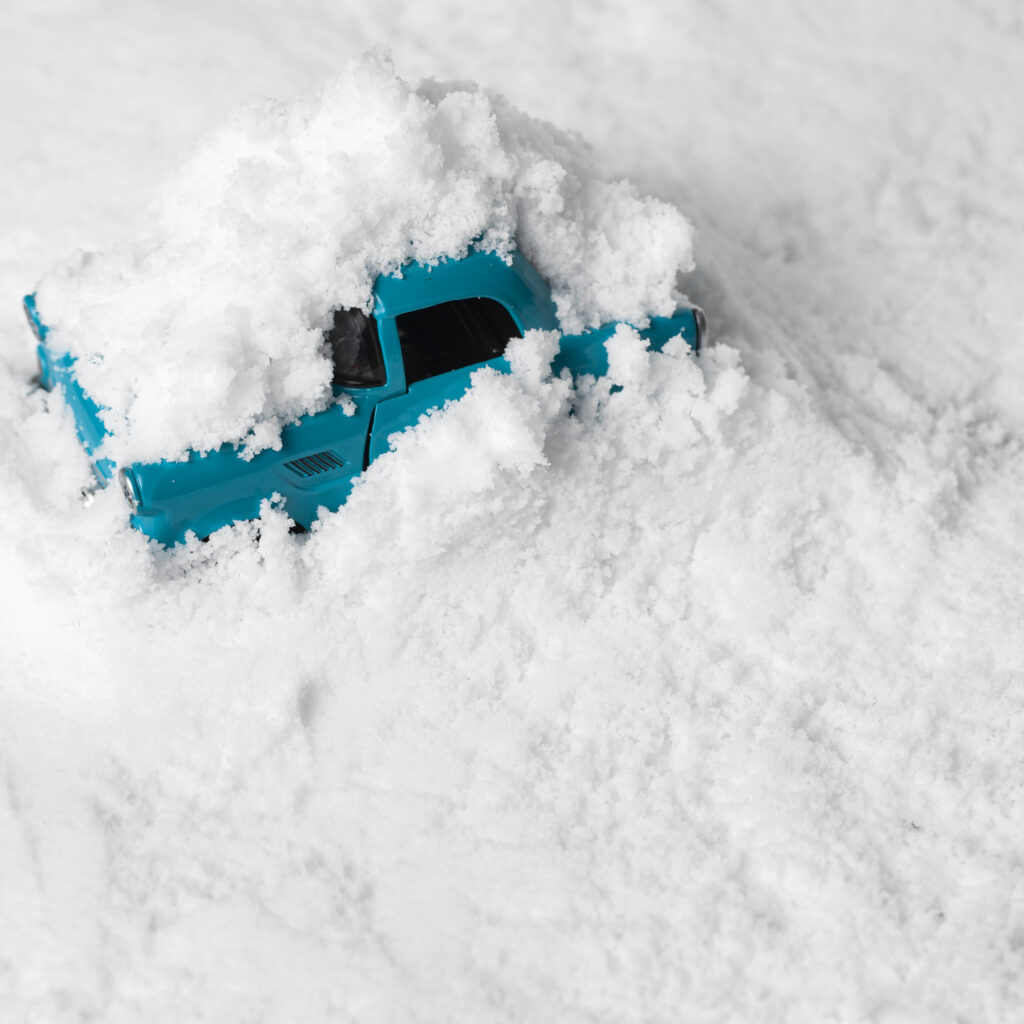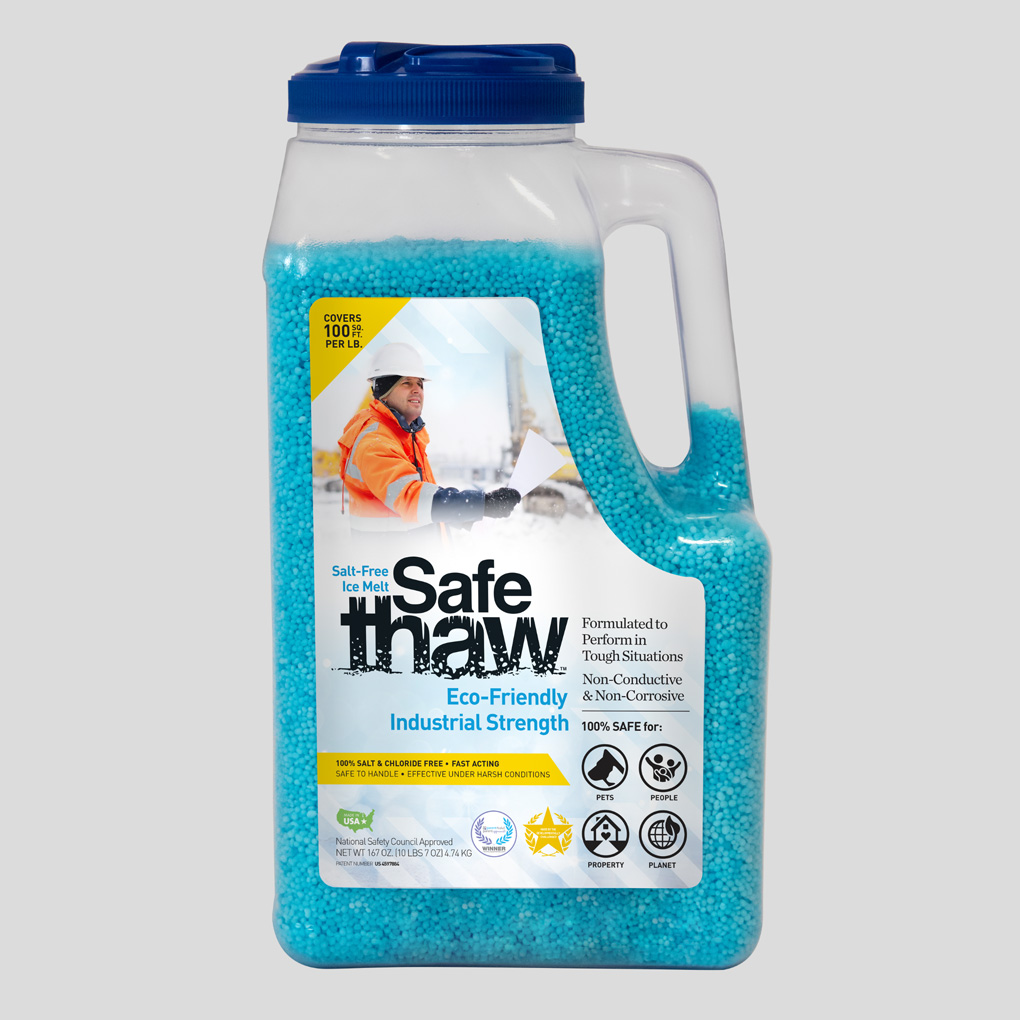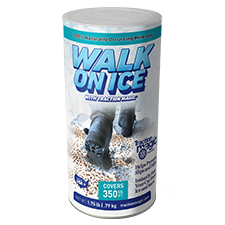Is Calcium Chloride Safe? Investigating Common Deicing Ingredients

Navigating through winter often involves battling icy conditions. One common alloy in this fight is calcium chloride. Its deicing ability is undisputed, but its safety is less universally agreed upon.
The question that frequently arises, “Is calcium chloride safe?” deserves an in-depth exploration.
No, calcium chloride is not safe, particularly when melting ice during winter. It can adversely affect the environment, infrastructure, and human health.
In this blog, we will focus on the potential risks on different premises and also mention an excellent alternative to calcium chloride, ideal for melting ice no matter if it is roof or parking areas.
What Makes Calcium Chloride An Effective Deicer?
Calcium chloride stands out as a deicer due to its exothermic properties. Unlike other salts, it releases heat when it dissolves in water, effectively lowering the freezing point of water on contact.
This quality allows it to melt ice even under severely low temperatures. In addition, its hygroscopic nature, which refers to its ability to attract and retain moisture from its surroundings, ensures that it stays moist and actively melts ice.
As a result, calcium chloride acts faster and lasts longer than other deicers, making it a preferred choice in challenging winter conditions.

Frozen Driveways? Melt the Ice Away with Safe Thaw!
Safe Thaw was created as the ice management solution for tough winter environments. Ideal in commercial and industrial properties, shops, government agencies, bridges, and construction.
Is Calcium Chloride Safe For Melting Ice?
While Calcium Chloride is commonly used for melting ice due to its effective deicing properties, there are concerns over its safety. The strong exothermic reaction it produces, which makes it excellent at melting ice, can also lead to burns if mishandled.
Furthermore, prolonged exposure to Calcium Chloride dust can harm respiratory health. Pets and wildlife are particularly vulnerable to its potentially harmful effects.
In addition, this substance can adversely affect the environment, notably plants and bodies of water. Its corrosive nature can damage infrastructure and vehicles.
Health Risks Associated With Calcium Chloride Exposure
We often rely on calcium chloride in winter to melt ice and improve safety. However, it’s crucial to understand the potential health risks associated with this common deicing agent.
- Skin and Eye Irritation: Calcium chloride can cause skin and eye irritation. Direct contact may lead to dryness, burns, or even severe irritation. Always use protective equipment when handling this chemical.
- Respiratory Problems: Inhalation of calcium chloride dust or fumes can lead to respiratory issues. Symptoms include coughing, shortness of breath, and chest tightness.
- Digestive System Discomfort: Accidental ingestion of calcium chloride can cause gastrointestinal upset. This can result in nausea, vomiting, or abdominal pain. Always store it away from food and beverages to prevent accidental ingestion.
- Risk to Pets: Pets are also at risk when exposed to calcium chloride. If ingested, it can cause severe discomfort or even poisoning. Pet owners should be cautious when using this deicer in areas accessible to animals.
- Special Concern for Vulnerable Populations: Certain populations, like children and the elderly, are more susceptible to calcium chloride’s health effects. Exposure can intensify existing health conditions or lead to new complications.
Potential Damage To Infrastructure And Vehicles By Calcium Chloride
Calcium chloride’s effectiveness as a deicer for driveways, roofs, and commercial parking lots is well-known. However, its potential impact on these structures and vehicles poses significant concerns. Here, we’ll delve into the potential damage caused by calcium chloride during ice melting.
Impact On Concrete Structures
Calcium chloride can exacerbate the freeze-thaw cycle in concrete, causing expansion and contraction. This process potentially leads to cracking and scaling in concrete driveways and parking lots. Such damage can escalate maintenance costs significantly.
Effects On Roofing Materials
When used on roofs, calcium chloride can accelerate the corrosion of metal roofing materials. Additionally, it can degrade certain types of shingles, resulting in leaks or other structural problems. Therefore, care must be exercised when using it on roofs.
Implication For Metal Infrastructure
Metal infrastructure such as rebar within concrete, railing, and gates can be susceptible to corrosion from calcium chloride. This corrosion may weaken these structures over time. This can result in safety hazards and necessitate costly repairs or replacements.
Damage To Automobiles
Vehicles parked on treated surfaces may experience accelerated rusting and corrosion. This is especially true for the undercarriage of vehicles, which can experience severe damage. Regular cleaning can help mitigate these effects, but it’s not always sufficient.
Degradation Of Asphalt Surfaces
While asphalt is generally resilient to deicers, calcium chloride can still cause some degradation over time. It can potentially dry out the asphalt, leading to cracks and potholes. This can be particularly problematic for commercial parking lots.
Winter Storms Are Here!
Stay Safe with Our 100% Salt And Chloride-Free, Pet Safe Ice Melt.
Alternative To Calcium Chloride That Ideal For Different Premises
For an eco-friendly and safe alternative to calcium chloride in melting ice, consider Safe Thaw. This product effectively melts ice without damaging surfaces, making it a perfect option for a wide range of premises.
Safe Thaw works well on surfaces like stone, metal ramps, decking, brick, and pavers. It’s even safe for use on properly formulated, air-entrained concrete at least a year old.
The versatility of Safe Thaw makes it a reliable choice for many entities. It’s ideal for Mass Transit Systems, Government Agencies, Hospitals, Factories, and Nuclear Power Plants.
Also, its use can significantly benefit parking lots, jetways, bridges, and construction sites. Essentially, Safe Thaw can be used anywhere people, vehicles, and machinery are operating. It’s a robust, user-friendly solution for maintaining safety and productivity during winter.
Is Calcium Chloride Safe For Pets And Wildlife?
Calcium chloride is not safe for pets and wildlife when used for melting ice. It can cause irritation and burns on their paws and skin. Ingesting calcium chloride can lead to gastrointestinal upset and other health issues.
Using it in areas frequented by pets and wildlife is not recommended. Although it is non-toxic to humans, it can still harm animals.
Moreover, calcium chloride can contaminate water sources, threatening aquatic life. You should consider alternative safe ice-melting methods for pets and wildlife, such as sand or pet-friendly ice-melt products.
Being mindful of the potential risks and choosing eco-friendly options can help protect the well-being of animals and the environment.
100% Salt & Chloride-Free Ice Melt for Winter Storm Protection.
Final Words
Investigating common deicing ingredients has shed light on the safety of calcium chloride. While calcium chloride is an effective ice-melting agent, consider its potential drawbacks. It can be corrosive to metals and harmful to plants and animals in concentrated amounts.
However, when used responsibly and in moderation, calcium chloride can safely melt ice. To ensure both safety and effectiveness, it is recommended to opt for alternative products like Safe Thaw, a safe and effective option for winter ice melting.
So, when asking, “Is calcium chloride safe,” it’s worth exploring alternatives like Safe Thaw for a safer and more responsible approach.
Try Also Our Other Winter Safety Products:
Safe Paw
The Original and #1 Selling Pet and Child Safe Ice Melt for over 20 years. Guaranteed environmentally safe –It won’t harm animals or children, and it won’t damage your property. That’s Safe Paw. Safe Paw can change how winter affects our planet.

Walk On Ice
The handy disposable canister can be taken everywhere, with the same 100% naturally occurring minerals that provide instant traction on ice or snow. Use it on sidewalks, steps, or as an instant traction agent for your car.



